
Access to safe toilets and Menstrual Hygiene Management is fundamental to education, economy, health and human rights. It is crucial to uphold human dignity. We need to address that 1,7 billion people don´t have access to a safe toilet, and that millions of girl’s don´t have what they need to manage their menstruation in a good and healthy way.

Leader of a women's group in Pakistan, Mima, in front of a toilet.
We have met girls that couldn’t change their sanitary pads for several days - risking getting infections. In emergencies, some don’t get access to crucial aid, as they cannot move around freely during their period. For many women and girls, lack of safe toilets, hygiene services and sanitary products, during their period, means that they can not go to work, fetch water, cook, practice their religion or go to school. Nevertheless, toilets and menstruation are a taboo in many places and this takes away basic human rights for women and girls.
Building safe toilets and hygiene services and giving women and girls access to what they need to manage their period in a comfortable way, is a fundamental part of our fight for a more just world. Norwegian Church Aid works to give more people access to safe toilets, showers, sinks and sanitary products – such as sanitary pads, underwear and soap. In addition, we start up women’s groups where they produce reusable sanitary pads – which both creates an income for the women and makes sanitary products more accessible on the local market. We also provide women and girls with information and training in how to handle menstruation in appropriate and safe way.
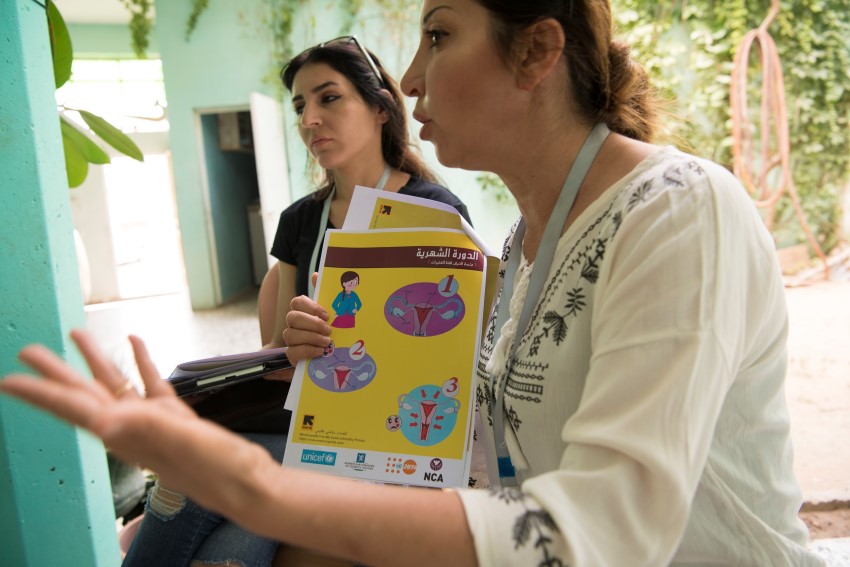
Information work on Menstrual Hygiene Management in North Iraq Photo: Håvard Bjelland/ Norwegian Church Aid.
Not having access to a safe toilet increases the risk of disease, abuse and creates major challenges for girls and women who are menstruating.
"This has enormous consequences for human dignity, safety and health. Going to the bathroom in the open air involves fear that someone will see you, or even assault, especially for women and girls" says Benedicte Næss Hafskjold, Norwegian Church Aid's Country Director in Lebanon and Syria.
The village Qazi Rasool Bux Rajjar in Pakistan is one of the villages that has received clean water and toilets from Norwegian Church Aid.
“Before, we had to wait until it was dark. We felt ashamed when we had to go behind the bushes. After our village got toilets, we feel comfortable, and we do not have to wait until it is dark. We feel safe.”, says Hurmat (15).
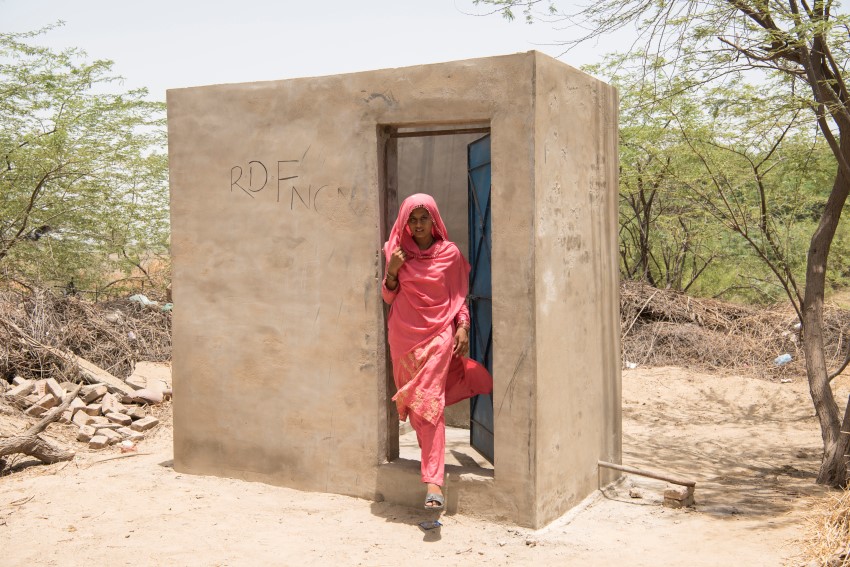
Photo: Hurmat (15) Photo: Håvard Bjelland / Norwegian Church Aid.
The challenges related to menstrual management are even more aggravated during humanitarian emergencies such as conflict and drought. Women and girls often find themselves in dire need of basic hygiene materials to interact comfortably in public and access humanitarian assistance. For refugees and internally displaced, access to clean water, safe toilets and hygiene services are especially challenging.
In August 2021, Norwegian Church Aid responded to internally displaced drought-affected women and girls, in five districts of the Somali Region in Ethiopia. We distributed 20,000 Menstruation- and Hygiene Kits (also called Dignity Kits) from UNFPA, which contained disposable sanitary pads, underwear, bath soap, comb, powder detergent, reusable sanitary pads, torchlight, bags, toothpaste, and toothbrush.
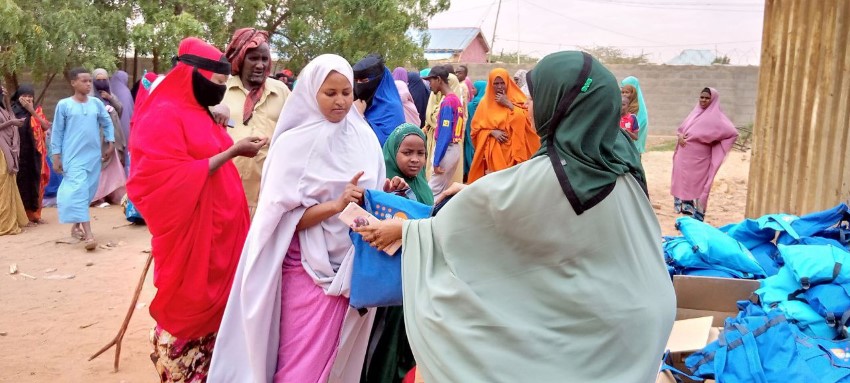
Distribution of menstrual management kits in the Somali Region in Ethiopia. Photo: Tinbit Esayas/ Norwegian Church Aid.
“The Dignity Kits has helped me accomplish my daily routines without shame. It has also helped with my confidence. My hygiene has improved, and I am managing my period properly” said Nurto Mohamed Adan, a rights-holder from Sigalo locality.
“When we use the sanitary pads, our clothes remain clean. We can move freely from place to place and no longer feel ashamed because of our menstruation,” added another rights-holder.
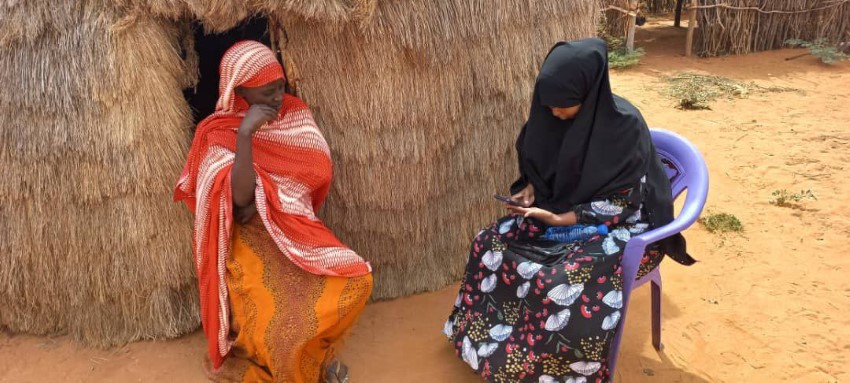
Pictured above: data collector interviews a rights-holder on the dignity kit she received. Photo: Tinbit Esayas/ Norwegian Church Aid.
“Hygienic materials have a direct dignity, health, education, and protection impact on women and girls. Most importantly, it impacts the mobility, community involvement, family functioning, economic participation, and safety & security of women and girls,” says Tinbit Esayas, GBV in Emergency Programme Advisor with Norwegian Church Aid in Ethiopia.
“Providing women and girls with dignity kits during emergencies is vital to restore their dignity and safety,” she adds.
Secretary General of Norwegian Church Aid, Dagfinn Høybråten, encourages male leaders to break the taboo that still surrounds menstruation and toilets in many places:
"Today, the majority of the world's leaders with power and resources are men, and many do not talk openly about menstruation and the problems women and girls get when they do not have access to a safe toilet. Male leaders must talk about menstruation and toilets, which takes away from girls and women very basic human rights. We need to put these issues on the agenda."
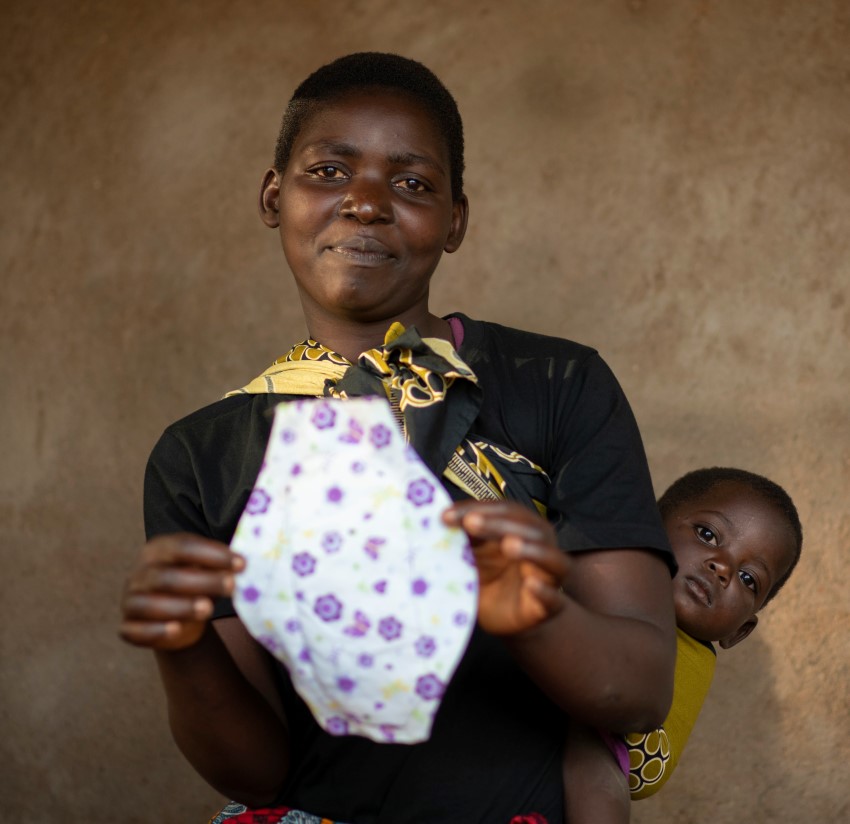
In Malawi, Asante is producing 300 reusable sanitary pads a week and has created her own workplace.
Photo: Håvard Bjelland/Norwegian Church Aid.
Published: